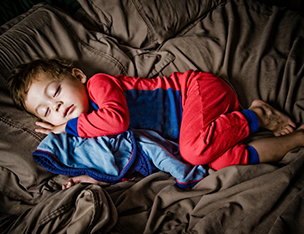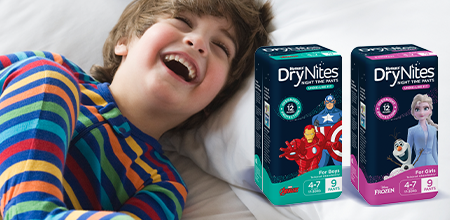Bedwetting simply refers to the uncontrollable passing of urine during sleep. It is treatable, unintentional, and very common in children. If your child is wetting the bed, it’s likely they are experiencing a minor developmental delay that affects their ability to hold in urine at night.
Even though it can be annoying to deal with the aftermath of bedwetting, it’s important to remember that your child not doing it out of laziness. Bedwetting is stressful, embarrassing and inconvenient for your child, too.








